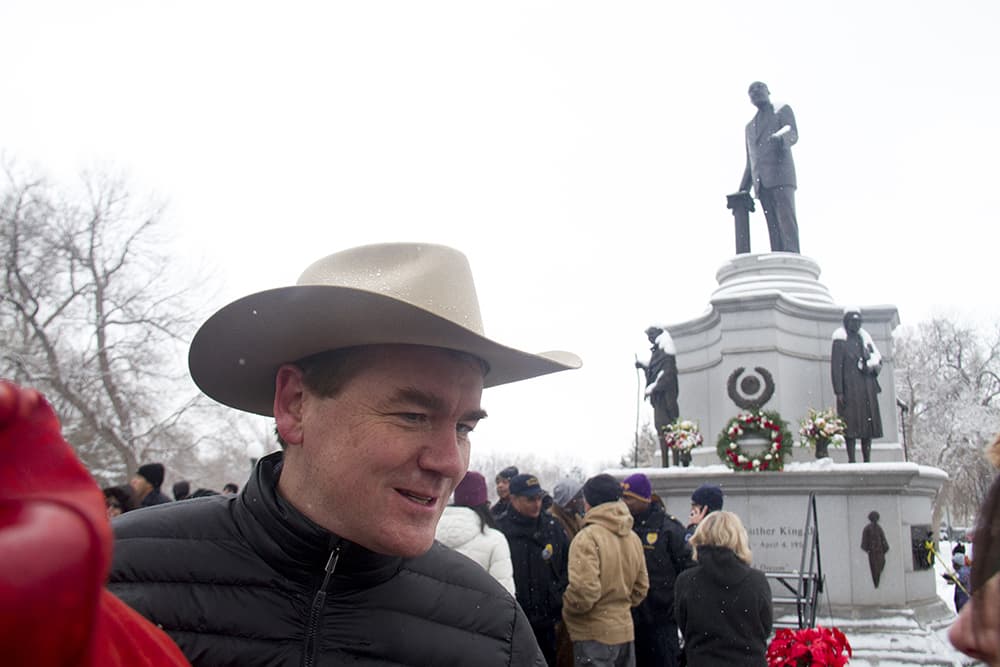
Alabama Sen. Jeff Sessions, President Donald Trump's nominee for attorney general, has a checkered record on civil rights and a reputation as a hardliner on immigration issues and marijuana.
Colorado Sen. Michael Bennet has now joined a growing list of Democratic senators who say they cannot vote for Sessions.
Like others who announced their opposition in the last week, Bennet cited Trump's executive orders on immigration in saying he could not support Sessions for attorney general.
"The U.S. Attorney General must ensure equal justice under the law, regardless of race, religion, gender, or sexual orientation. Jeff Sessions has repeatedly opposed efforts to protect the rights and liberties of all Americans. I cannot support his nomination.
"On a variety of issues, Senator Sessions falls short. He has blocked bipartisan efforts to expand voting rights, protect women from harassment and violence, and reform our criminal justice system. In 2013, when a bipartisan group of senators crafted principled and compassionate comprehensive immigration reform legislation, Senator Sessions was its most outspoken opponent. During that debate, he used fear and falsehoods to derail our best chance in years to fix a broken system.
"This week's executive orders on immigration make clear that Senator Sessions' views will shape the Trump administration's policies. We need a chief law enforcement officer who protects the civil rights of every American, not one who perpetuates fear and undermines our obligation to ensure equal justice under the law."
Cabinet picks are not subject to the filibuster. That's thanks to a rule change pushed through by Democrats in 2013 when Barack Obama was still president and Senate Republicans, then in the minority, were obstructing his nominees. So Sessions only needs a simple majority -- or 51 votes -- to be confirmed. And there are 52 Republicans in the Senate.

So to block Sessions -- or any of Trump's nominees -- Democrats would need a united front AND to peel off a few Republicans.
Democrats have been voting for Trump's nominees, much to the frustration of liberal activists. Meanwhile, conservatives see, frankly, hysteria in the grassroots reaction on the left to Trump's cabinet picks.
Over at Vox, Matthew Yglesias tried to put this question in context.
Lurking in the background is the accurate perception that Republican Senate Leader Mitch McConnell orchestrated an unprecedented and successful years-long campaign of obstruction to Barack Obama’s agenda, a campaign aimed in part at policy victories but largely at delegitimizing the new president and denying him the halo of bipartisanship. Is it really possible that Democrats have learned so little from the success of McConnell’s “just say nothing” approach?
The reality, however, is that while McConnell certainly did break precedent and certainly did have this kind of strategy, GOP opposition was less across-the-board than it’s remembered in liberal folk history. Obama passed a number of significant bills with Republican support in his first two years in office, and Democrats have, thus far, been drastically less cooperative with Trump’s Cabinet nominees than Republicans were with Obama’s.













